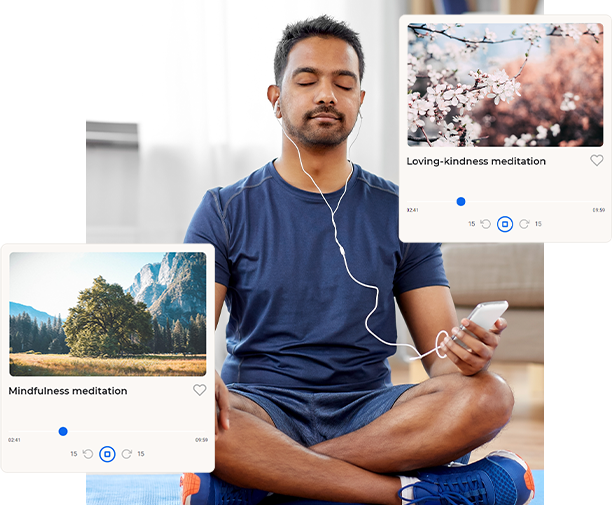Sensitivity is a word commonly used to describe how one reacts to the environment social stimuli around them, both emotionally and physically. However, if you feel different, unlike an average person, you may be a highly sensitive person or HSP. It’s a personality trait that describes someone who feels sensations and emotions react strongly or has strong feelings more intensely.
Additionally, they are more sensitive to physical sensations. And they need a significant amount of time to recharge themselves. So it’s important to know that being an HSP isn’t about having a mental health disorder. Besides, there’s no way to diagnose someone as HSP.
Being HSP has its strengths and weaknesses. Moreover, there is no harm in that. You can lead a fulfilling and rich life even if you are an HSP. This post explains what an HSP is, how to identify one, and how to deal with it.
What is an HSP?

A highly sensitive person will have a heightened awareness of the stimuli around them, which can be good or bad. For example, an HSP is someone whose brain will process all kinds of information deeply. These might include sensory input, thoughts, and emotions.
As such, it makes them more emotionally and physically highly sensitive persons than other people. Like other personality traits, high sensitivity is healthy and normal. It comes with its advantages and disadvantages as well. For example, HSPs carry the title of being “too sensitive.” Although being highly sensitive comes with specific challenges, it has many strengths.
Highly sensitive people excel at empathy and creativity. Additionally, they can notice things that others aren’t capable of. The trade-off for these qualities is that the mind becomes overworked. This results in emotional overload or overstimulation.
What are the signs of an HSP?

Every highly sensitive individual will have varying and unique traits. The following are some of the most common ones.
1. You are emotionally exhausted frequently
An HSP will absorb other people’s emotions like an empath would. It’s common for an HSP to sense the moods of people around them. They are well aware of the voice tone, body language, and facial expressions. Combining the higher levels of empathy, an HSP will feel intense emotions that aren’t theirs. You are an HSP when you suffer from the emotional exhaustion of others.
2. You tend to withdraw often
Whether you are an extrovert or introvert, you will need lots of downtime, mostly alone. Hence, you would withdraw to a darkened, quiet room after a tiring day. That way, you can recharge your energy levels, soothe your senses, and lower your stimulation levels.
3. You can’t handle time pressure
If you remember, speed tests and timed quizzes will make sensitive nervous system make you feel overwhelming anxious. Especially if you fail to perform like you usually do. You end up feeling stressed when you have many things to do but don’t have enough time. Being an HSP, you are sensitive to stimulation, and so is the time pressure.
4. You have deep thoughts
An HSP will process information deeply. It means you will reflect more on your experiences, unlike other people. Sadly, it means you are susceptible to negative thoughts resulting in overthinking, which creates a feeling of impending doom. Besides, you will play the events on a loop in your mind.
5. You will look for answers
Undoubtedly, an HSP will always look for answers to some of the biggest questions in life. They will want to know why certain things look fixed and what their role is in life. If you are an HSP, you have always wondered why mysteries of the universe and human nature interest others.
6. You are sensitive to clothing
You will always be highly sensitive person scale as to what you like to wear. Restrictive clothing like pantyhose will irritate you. However, a non-HSP may dislike these things as well. But an HSP will choose the wardrobe they want. Even if they wear one, the discomfort may ruin their experience.
7. You live in a different world
HSPs live in a world that’s present and alive. Because of deep processing, they will have keen imagination and a rich world different from the real one. That way, you can have imaginary friends, enjoy fantasy play, etc. In short, you are a daydreamer and have vivid, realistic dreams rich inner life.
8. Change is what they don’t like
HSPs are comfortable when they follow their routine. The more they are familiar with their lifestyle, the less it will stimulate them. Adapting to a new setup will make them uncomfortable. Whether the change is positive and negative influences them or positive, it can throw them off. For example, if they get a job promotion, an HSP will be stressed and overjoyed at the same time. As a result, they will need more time to adjust to the changes.
9. You are misunderstood frequently
Because high sensitivity is mislabelled, people may consider you anxious or shy. In addition, they are labeled as introverts sometimes. They share similar characteristics like they need plenty of downtime.
10. Your environment becomes your enemy
Suppose moving to a new house or even traveling is a fun-filled experience. However, this is different with an HSP. It is hard for them to face such situations; instead, their senses are bombarded with new sensory and emotional stimuli, and they become more intense.
11. You love doing things slowly
People with high sensitivity will pick up information and process it slowly. They won’t rush into things like others and prefer to do something at their own pace. So, they analyze things slowly and deeply to achieve their desired outcome. So they try to make sense of everything.
12. Recharging yourself will take more time
People with high sensitivity will feel more sensations and emotions compared to others. As a result of sensory overload and sensory processing sensitivity, they will become more tired and overly stimulated. After engaging in stimulating activities, they need more downtime or rest. Besides, they will feel overwhelmed if they don’t get enough time to recharge. So, you need to have more rest than others.
13. Conflict is poison for you
If there is disagreement or tension in your close relationship, you will feel it deep inside you. You may even make yourself ill after a heated argument. Hence, some HSPs avoid conflict. Also, they do certain things that make the other person happy. For example, conflict hurts others feelings and them internally, and they avoid it at any cost.
14. You put in your best efforts
Whether you experience school stress or work stress, you try to avoid mistakes to prevent more of a blowout. But that doesn’t mean that you are perfect. Still, you give your best efforts; few tend to give.
How to deal with an HSP?

For a person with high sensitivity, some situations could be overstimulating, and emotions can take over. Below listed are some ways to deal with it.
1. Take out time for yourself
Whenever you feel overstimulated, consider taking breaks. Also, avoid situations that make you feel overwhelmed. Therefore, step back for some time while setting boundaries. Moreover, you can take a break without being overwhelmed. Consider taking a break before reaching the breaking point.
2. Manage stress
No wonder HSPs are easily overwhelmed and by stress easily. It is wise to learn some techniques to deal with stress. Think about long-term strategies. These include meditation, getting adequate sleep, exercising, eating good food, etc.
Our guided meditation app Declutter The Mind is a great, free way to practice and learn meditation for any mood or pain you’re trying to alleviate, including stress.
3. Practice mindfulness
Typically, it involves paying attention and observing the present moment without making a judgment. Mindfulness lets you consider whether your thoughts and actions were justified or accurate. As such, you react with wisdom and intention than reflexively. There are plenty of ways to practice mindfulness, including meditation.
4. Try to say “no”
Because you are a high sensitive person (or have a highly sensitive child), you may feel guilty saying “no” to others. Ultimately, this leads to burnout. So, set your boundaries and say “no” to things that make you uncomfortable. Keep in mind that saying ‘no’ is essential for your well-being.
5. Develop close relationships
A highly sensitive person tends to have deep bonds with others and is often considered a supportive friend. Limiting your time with people you believe are too draining is no harm.
6. Having a balanced life is the key
Being an HSP, you want to ensure your life isn’t chaotic and busy. At the same time, you don’t want to get bored. Finding the right balance between overstimulated and understimulated can help you achieve great well-being. Remember that some people will need more downtime compared to others.
Conclusion
Being an HSP isn’t a medical condition that requires treatment. Some essential traits of an HSP include lower tolerance toward sensory input and deep processing of stimuli. However, you may get relief through therapy or reading books about HSP.
Being highly sensitive is manageable, and you won’t feel overwhelmed. As such, it makes you think toward positive outcomes. For example, you may use empathy to understand others better while fostering more meaningful relationships.
The high points of richer life that you experience are more joyful compared to ordinary people. Your empathy for others isn’t a weakness. Therefore, be kind to yourself and have a solid plan to handle the situation. That way, there won’t be stressful, upsetting or overwhelming situations, and you can celebrate life daily.




